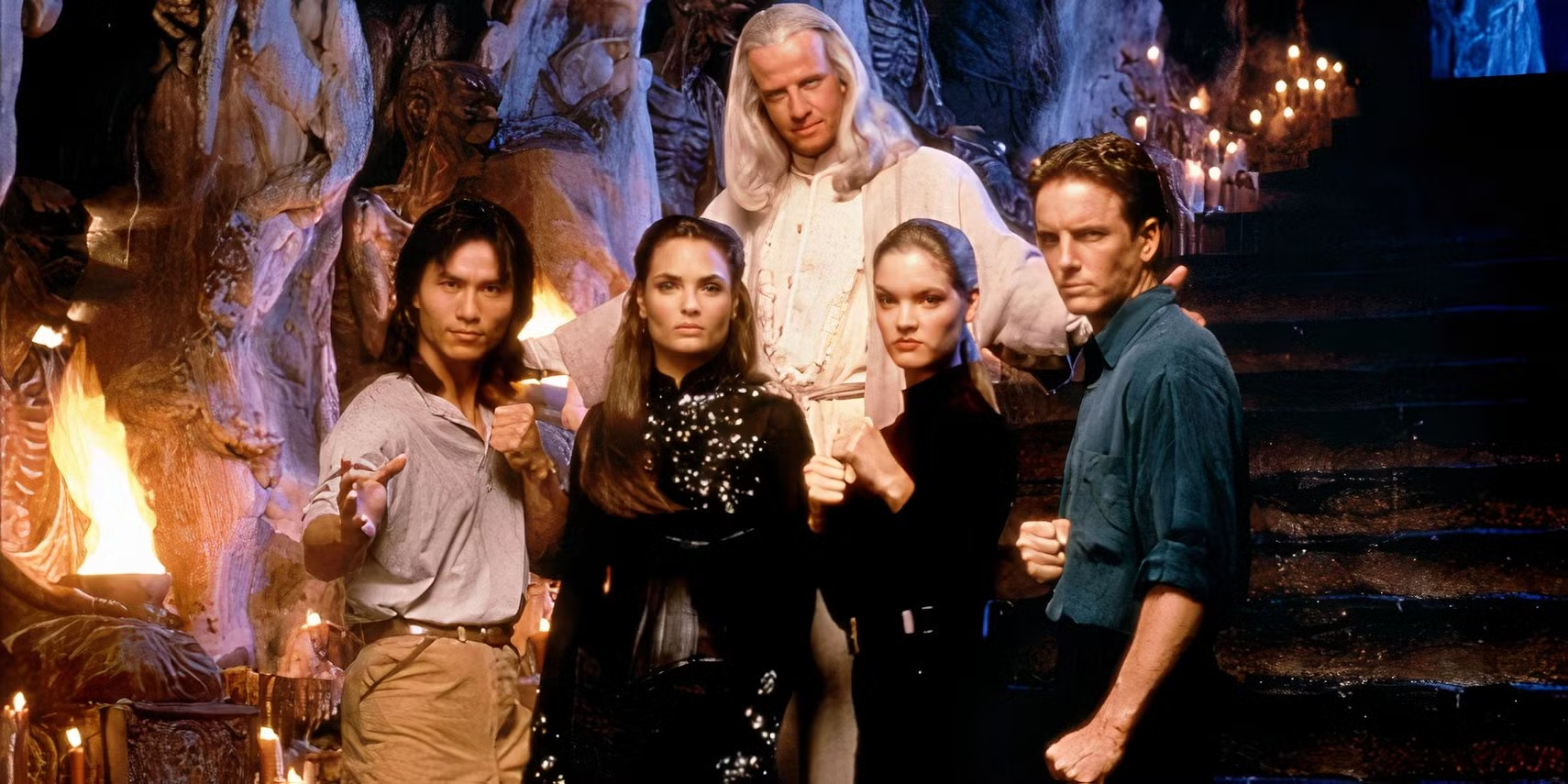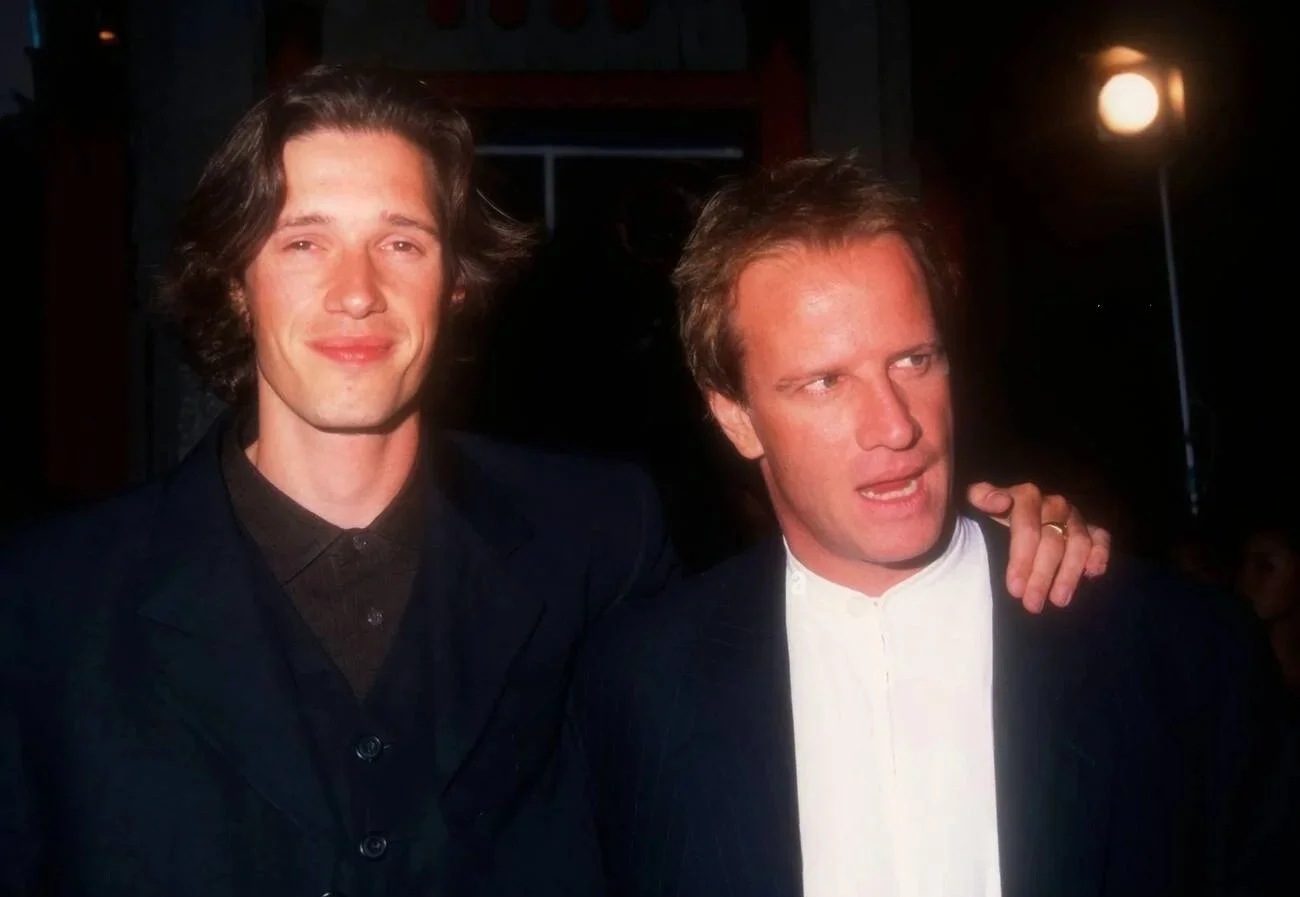Christopher Lambert, Linden Ashby & Paul W.S. Anderson Celebrate 30 Years of Mortal Kombat
These integral cinematic heroes, among others, have kept earth realm safe for three decades. They sit down with FilmSpeak to talk about the film’s anniversary.
When film theorists discuss the greatest year in film during the 90s, its almost always 1999. Many still consider that to be the greatest year in film in the history of the art form, but it’s older brother, 1995 might be the forgotten child. ‘95 provided everything any film fan would have wanted. Need a sweeping epic? No problem. Here’s ‘Braveheart’ before Mel Gibson’s brand was permanently tainted. Need an allstar thriller that’s auspiciously prescient? Here’s ‘Outbreak’ before Kevin Spacey’s brand even got started, let alone was permanently tainted. It had enough rom-coms for the millenium with entries such as ‘The American President’, ‘Clueless’ and Hugh Grant in practically everything else. Crime thrillers had The Usual Suspects, Heat and Seven. Starting to get the (motion) picture? It was absolutely loaded.
Yet 1995 also carved out a name for itself in the genre of science-fiction. ‘95 gave us ‘Dredd’, ‘12 Monkeys’, but somewhere in all of this was a sci-fi action movie based on a video game. A video game that hadn’t really been out for all that long. It had a young director making his sophomore effort, with an almost European sensibility. It was a ‘blockbuster’ but made by a studio only known for Freddie Kruger and the Ninja Turtles at the time. Really, it comes down to this - if you ask anyone who was young enough to appreciate it, and witnessed the trailer to this film, they will tell you 1995 truly belonged to ‘Mortal Kombat’.
For the full interviews with Ashby, Anderson and Lambert, click the videos below. Or continue scrolling for the remainder of the article.
It has defied all odds in terms of staying power. The sequel alone could have tainted any memory of the film, or the almost 20 year hiatus in between Annihilation and the 2021 reboot, which will see its own sequel released later this year. Yet lets not waste time discussing Karl Urban or the new cast, Linden Ashby (Teen Wolf), director Paul W.S. Anderson (Resident Evil) and the icon himself, Christopher Lambert (Highlander) are here to look back at this cult-blockbuster (if there is such a thing).
If you ask any of these three me about the staying power of the film, they are equally as baffled. Not that they didn’t believe in the project, but the film is still widely considered the best Mortal Kombat films (so far) and can easily be considered one of the greatest video game adaptations as well. That sub-genre has innumerable examples of films with problems and cinematic curses, but Mortal Kombat as defied the odds. Lambert has a lot of gratitude for the fans, and credits Mortal Kombat, with a few of his other films for his own cult status.
Christopher Lambert as Raiden in Mortal Kombat (1995)
“I would say that when you have at least four or five movies that become cult movies, there's something showing up on the fan’s side” says Lambert. “Gregory Peck did 110 movie, and he said, if, if among these movies. You have five cult movies, you are an untouchable. I'm not saying I'm an untouchable, and I’m not comparing myself to him, I'm just saying that I've been lucky in my choices. I've been lucky in the fact that it pleases the audience”. Lambert, even after nearly four decades as an icon from films such as Highlander and his role in Mortal Kombat as Raiden is being modest in this writer’s opinion. It was more than luck, it was the humanity he gave these roles he considers to be massive and almost ‘biblical’.
His colleagues in Anderson and Ashby give him a lot more credit than he’s willing to give himself. Anderson, as mentioned, was directing only his second film in Mortal Kombat, and while he and Ashby recognize that while most of the cast and crew were young artists trying to establish themselves, Lambert was an absolute rock. Anderson also recalls that growing up part Scottish had a big influence on his childhood, and Highlander and “Christophe” (as he calls Lambert) was a massive deal. “Christophe was very gracious being the biggest star in the movie. He was a very, very big star in Europe, and for him to sign on to the movie was a big deal. Once he threw his weight behind me, it was massive. He's a very, very nice man, very supportive. That was a big deal for me, confidence wise, for me as a young filmmaker, but then he was also the big star on set, so once you have his support, you know, that helps you with the studio as well”.
Paul W.S. Anderson and Lambert in 1995
Lambert, who Ashby credits as the only cast member who didn’t need the film to work was perhaps its biggest supporter. Anderson also reminisces about just how many small things Lambert did for the film just to make it that much better. “The deal we did with Christophe was we only had him for a limited period of time” Anderson recalls. “So we tried to compact all of Raiden's scenes together. The idea was, because we only had him for a limited period, we started shooting the movie in LA and then at the very end, we went to Thailand for three weeks to do all those big Thai exteriors, like the temple where you first meet Raiden. The idea was like Highlander. Sean Connery never went to any of those locations, because they only had him for a week. So they shot a double in all of the big locations in Scotland, and then they did Connery's close ups in a studio in London. So it was the same plan for for Mortal Kombat, I was going to have a double in Thailand, and do Christophe close ups in LA. But [Lambert] came to me and he said, ‘Paul, I feel like you're going to compromise the movie if you do that. Because we got away with it in Highlander. But you can't get away with as much these days’. He was passionate about the movie, and wanted the movie to be as good as it can be. I said ‘Listen, that's amazing, but I don't think they're going to pay you’ and he said, ‘That's okay. They don't need to’. So he came to Thailand for a week for free and and it really was great benefit.”
Yet if it weren’t for the work of everyone on this picture, FilmSpeak wouldn’t be writing this retrospective on why it worked. “Everybody needed it to work for a different reason” Ashby argues. “Robin [Shou] needed it. Paul needed it. I needed it. Bridgette [Wilson Sampras] needed it, and everybody was there and we brought our A-game, whatever that is. I think that everyone was there in time, effort, hard work, and luck. Right time, right place, right group of people, and we created this thing like that was bigger than any of us. You catch lightning in a bottle.”
That lightning in a bottle ended up not only imprinting on millions of fans, but the mythology of Mortal Kombat itself. At the time of filming, the second Mortal Kombat game was just barely available on home consoles. The writer, Kevin Droney, Anderson and the cast were really creating the personalities of these characters from scratch. Ashby more than anyone left an indelible mark on the soul of Johnny Cage.
Linden Ashby as Johnny Cage in Mortal Kombat (1995)
“We kind of created that character” Ashby admits. “A lot of these things that have sort of become these iconic [characteristics] were ad libs, they were sort of in the moment. I'm happy, thought, I gave Johnny Cage his Johnny Cage-ness. It is a strange thing to have created a character that has become bigger than me. I kind of feel like it's bragging or whatever, but it's just fact. I gave him his personality, and, and now he's gone on without me”.
There is an air of sadness when Ashby is talking about one of his most memorable roles. The actor even agreed it’s slightly akin to raising a child and letting that child grow up and leave the roost. Yet Ashby is also quite vocal about the why and the how surrounding his departure. Ashby, like so many others who were involved in the original Mortal Kombat did not return to the widely panned sequel two years later.
The animatronic Goro (left, obviously) faces of against Ashby’s Johnny Cage (right)
“It was a mistake, in my opinion” Ashby, as mentioned, does not mince words when it comes to the mismanagement of the franchise. “ I had a sequel deal, but they didn't think that the actors were important. It's a disregard for what actors bring to something. They didn't like Bridget. They didn't think Bridget tested well. They didn't think I tested well. They thought that the video game was what it was all about. You have to understand, there's a big difference between a movie and a video game, and I don't know that the powers-would-be understood that. They just thought that ‘these guys are interchangeable’. They didn't understand the chemistry that we had created, the fun, the relationships, is what people liked. It's what made that movie special.”
Anderson made his decision based on something much more pragmatic, and has no bitterness at all. Early in his career, he often made these ‘micro-blockbusters’ before he was almost single-handedly responsible for the entire Resident Evil franchise. A young Anderson had no interest in becoming a franchise man. Not yet anyway. “You have to remember, it was only my second film” Anderson reminds us. “I had just done Mortal Kombat and New Line were keen to jump in and do Mortal Kombat 2. I thought ‘is that really what I want to do?’ Mortal Kombat was 50% of my career at that point. So now it's, you know, 66% of my career would have been Mortal Kombat, if I had done the sequel and I was keen to spread my wings and do something else as a filmmaker”.
This reminds fans of this franchise exactly why this film is so special. Lightning-in-a-bottle is overused, perhaps, but it is perfectly indicative of how the stars aligned with a young cast, a science fiction icon, a young energetic director, and everyone coming together to make it happen for the right reasons. This isn’t lost on those who were involved with it, evident from the fact they are willing to sit down and chat about the film three decades later, but more importantly, the talent behind Mortal Kombat recognizes its staying power.
“What's nice is the film has got a nice place in people's hearts” Ashby glows. “It was part of a lot of people's childhood and, or their their lives, and it's really cool to be part of a pop phenomenon like that, and you make a lot of people happy. I don't know, we somehow got it right. I mean, we're talking about it 30 years later, right?”








